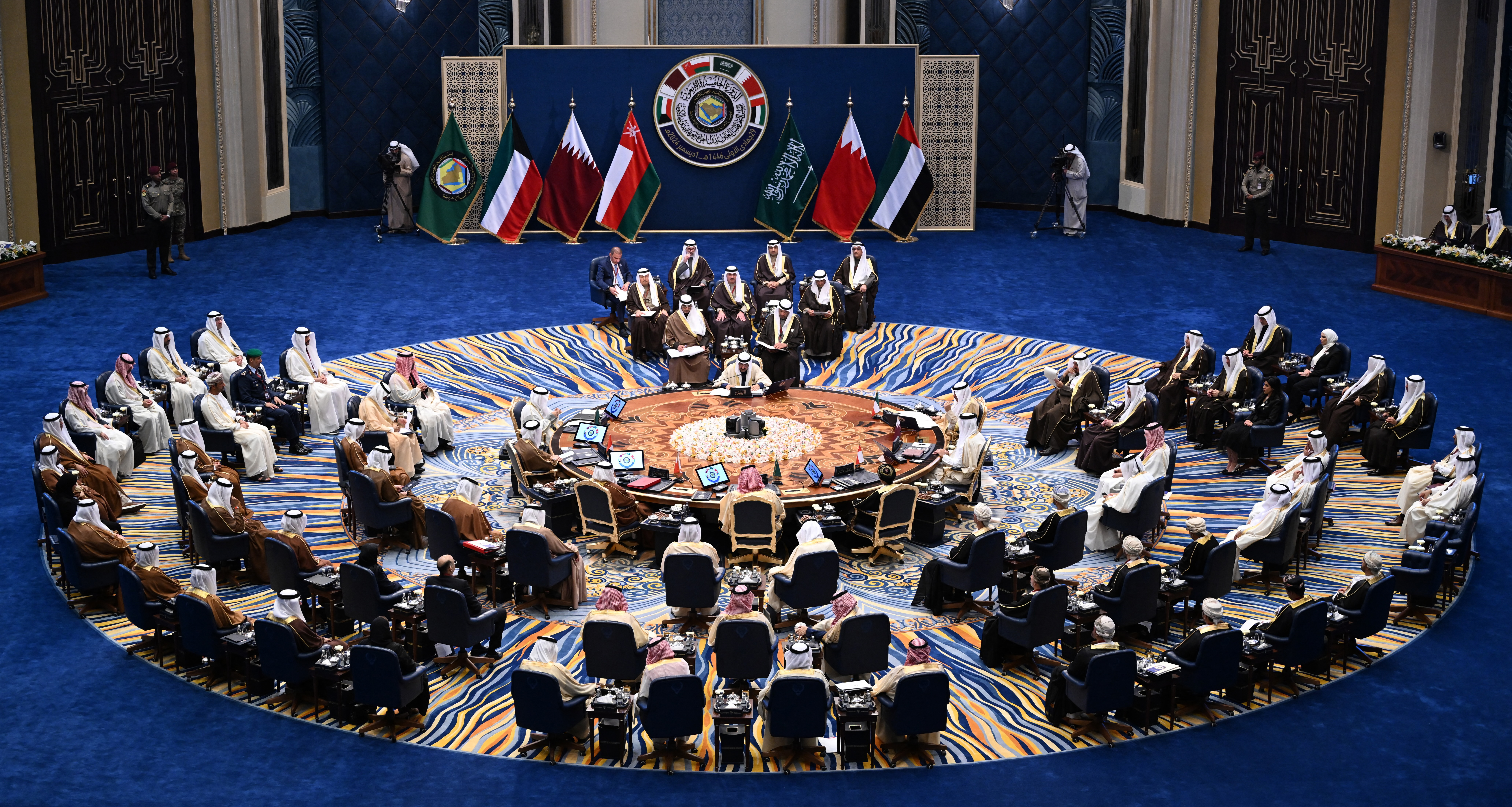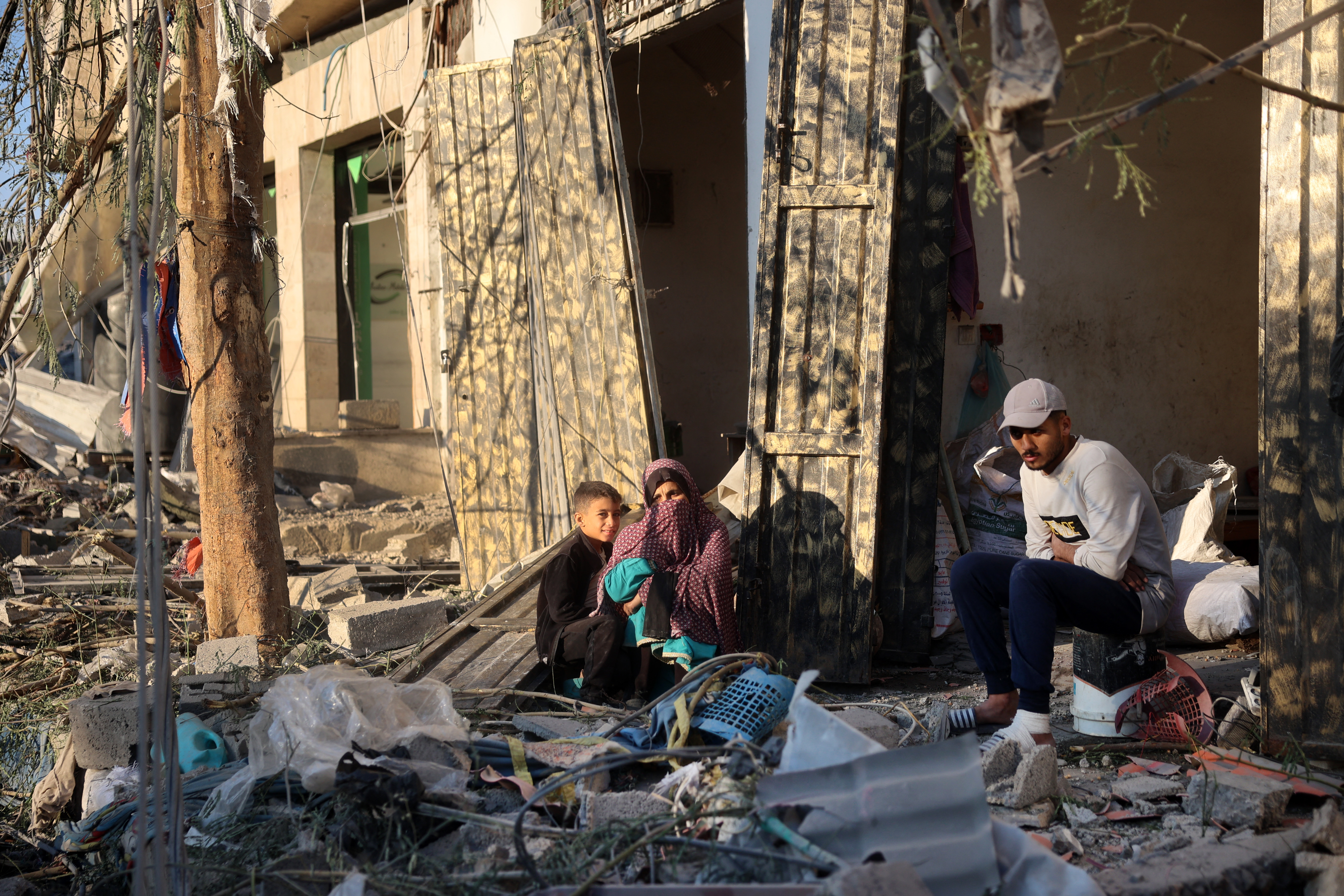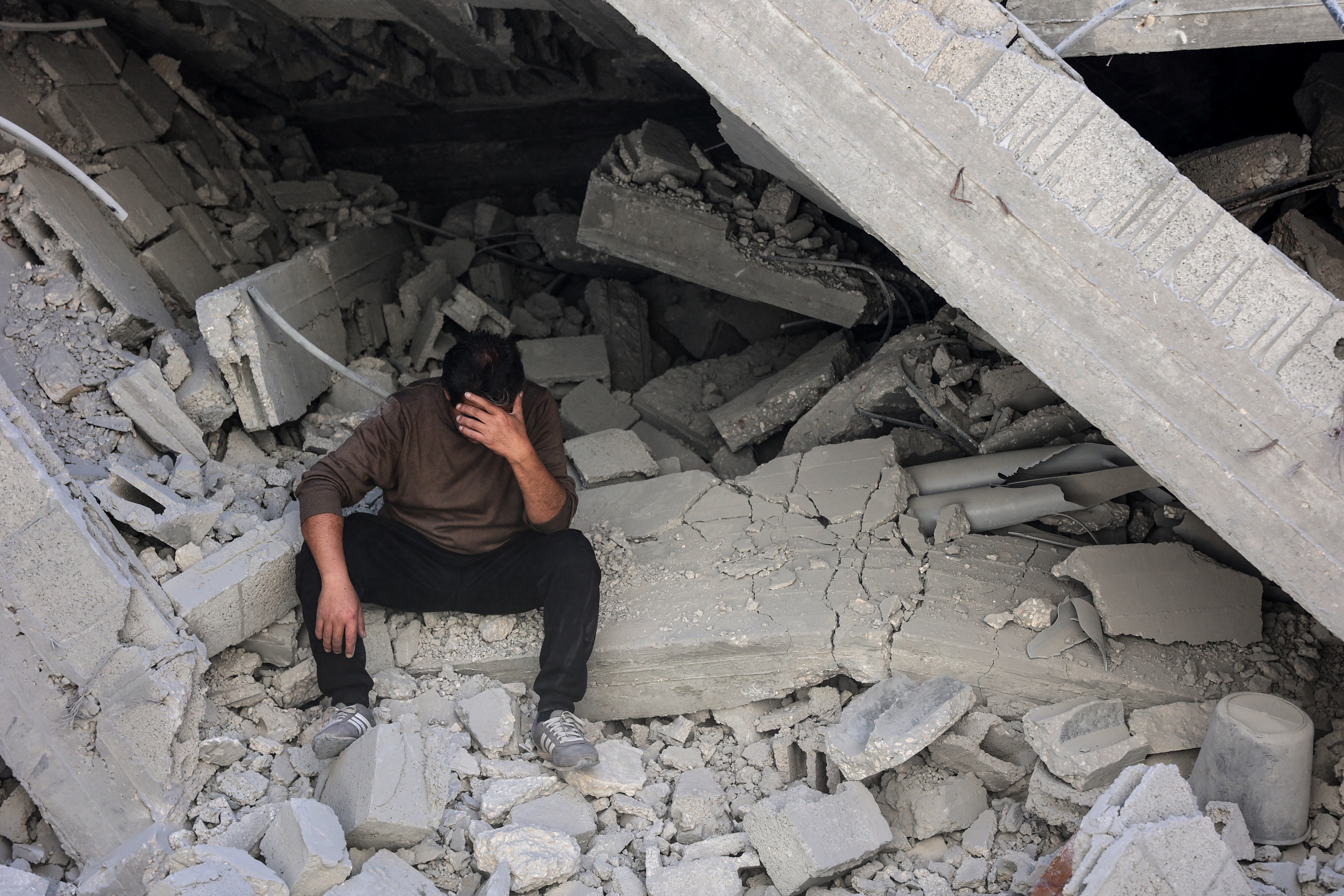
The leaders of the Gulf Cooperation Council countries have again demanded that Israel end its collective punishment of the Palestinian people and occupation in Gaza.
Their calls came at the 45th session of the GCC Summit on Dec 1, which took place amid a fragile Lebanon-Israel peace truce and raging atrocities in Gaza and the West Bank.
“The Supreme Council demanded a halt to the crimes of killing and collective punishment in Gaza, the displacement of residents, and the destruction of civilian facilities and infrastructure, including health facilities, schools, and places of worship, in clear violation of international law and international humanitarian law,” the declaration published on the GCC website said.
The representatives of the GCC — Saudi Arabia, United Arab Emirates, Qatar, Bahrain, Kuwait, and Oman — held a wide-ranging dialogue at the session in Kuwait City.
ALSO READ: At least 54 'killed in Israeli strikes' across Gaza
The GCC also called for intervention to protect civilians, to sponsor serious negotiations while reaffirming its firm stances on the Palestinian cause, and to support the sovereignty of the Palestinian people over all of the occupied Palestinian territories dating back to June 1967.
They reiterated their desire for the establishment of an independent Palestinian state with East Jerusalem as its capital, and guaranteeing the rights of refugees, per the Arab Peace Initiative and international legitimacy resolutions.

The Gulf leaders also welcomed the resolutions of the extraordinary Arab-Islamic summit, hosted by Saudi Arabia on Nov 11, to enhance international action to halt the conflict in Gaza, achieve lasting and comprehensive peace, and implement the two-state solution.
On Nov 11, Saudi Crown Prince Mohammed Bin Salman led a summit in Riyadh denouncing Israel’s genocide. In October, Saudi Arabia hosted the first meeting of a new international alliance pushing to establish a Palestinian state.
The GCC welcomed mobilizing support for the recognition of the State of Palestine and leading the international coalition to implement the two-state solution. It cited Qatar, which had been heavily involved in cease-fire talks.
ALSO READ: Israeli strikes kill dozens in Gaza, Egypt to host Hamas for truce talks
They also discussed efforts to achieve economic diversification, the transition to a sustainable and innovative economic model, and enhanced cooperation with security and stability in mind.
The GCC leaders condemned Israeli aggression against Lebanon, warning against the dangers of its continuation and expansion of the conflict, threatening international peace and security.
Gokhan Ereli, Gulf studies coordinator at the Center for Middle Eastern Studies in Turkiye, told China Daily that the GCC statement underscores its aspiration to emerge as “a pivotal regional leader, demonstrating a resolute commitment to managing crises and fostering stability through diplomacy and dialogue”.

He said by addressing the humanitarian catastrophe in Gaza, advocating for adherence to international law, and calling for a cessation of hostilities in Lebanon, the GCC reaffirmed its proactive stance in “navigating complex geopolitical challenges”.
“Its support for the Palestinian cause and the revival of the Yemeni peace process further highlights its dedication to sustainable conflict resolution and regional cohesion,” he said.
“Their stance also reflects genuine historical and cultural commitments to Palestinian rights, rooted in domestic and regional pressures,” said Ereli.
Speaking to reporters a day before the summit in Kuwait, GCC Secretary-General Jasem Mohamed Albudaiwi strongly criticized Israel’s allies for failing to convince Tel Aviv to end the “barbaric aggression” against the Palestinian people.
“Even Israel’s closest allies failed to influence its government to stop the barbaric military operations in Gaza,” Albudaiwi was quoted as saying by Middle East Monitor.
ALSO READ: IMF: GCC economies show resilience amid regional conflicts
In Israel, former defense minister Moshe Yaalon accused the Israeli government of committing war crimes and ethnic cleansing in Gaza, during an interview with Israeli public broadcaster Kan.
Meanwhile, Israeli President Isaac Herzog said on Dec 1 that as there was an agreement reached regarding the northern border with Lebanon, it was time to finalize a deal and bring the hostages home from Gaza and said that negotiations were taking place “behind the scenes”, the Times of Israel reported.


